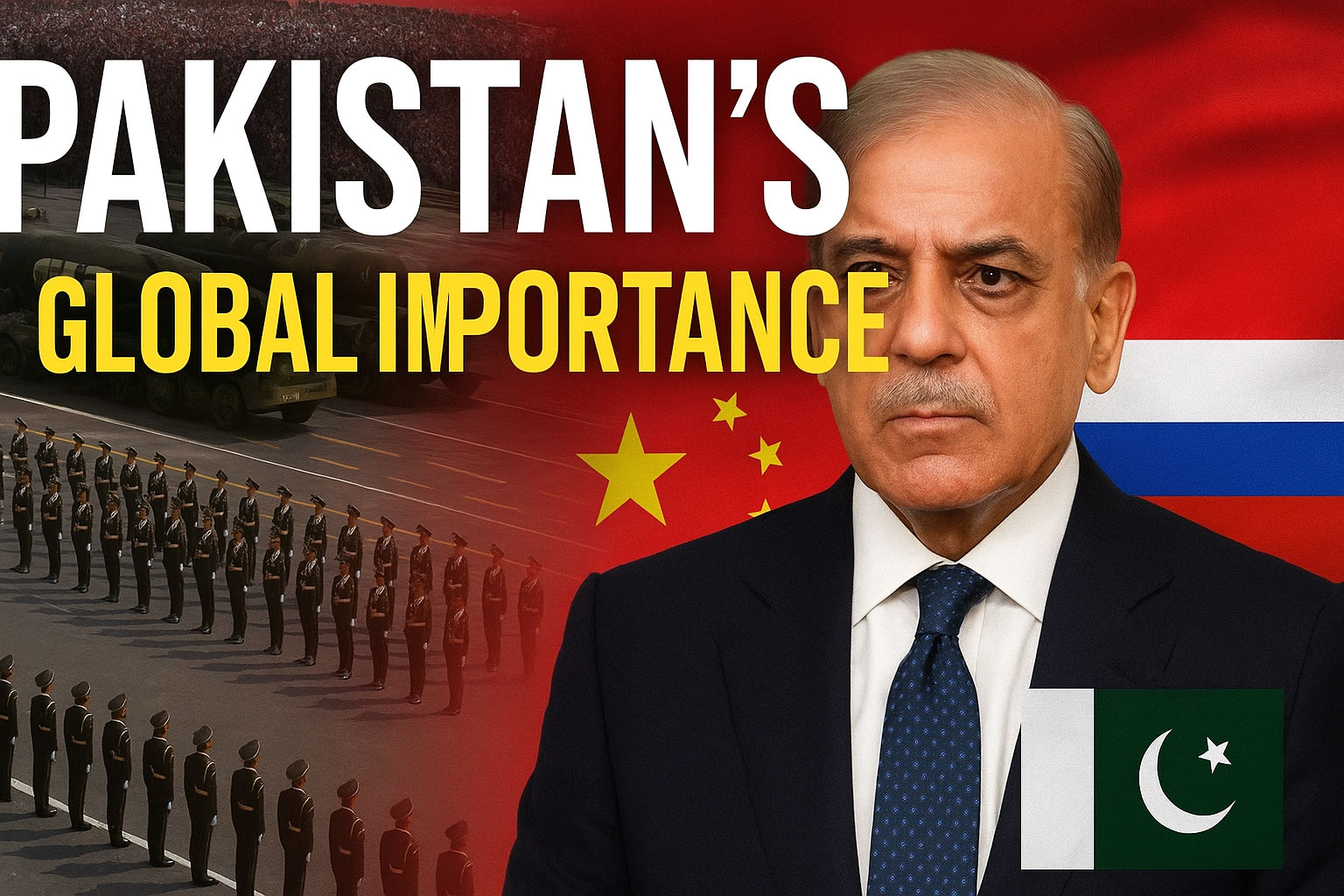In today’s fast-evolving global order, Pakistan’s geostrategic importance has become more crucial than ever. The recent military parade in Beijing, held to mark the 80th anniversary of China’s victory over Japan, not only displayed China’s cutting-edge military power but also reshaped the international debate on alliances and power structures. For global analysts, the presence of Pakistan’s Prime Minister Shehbaz Sharif in the front row alongside the leaders of China, Russia, and North Korea carried far-reaching implications.
China’s Rise as a Global Superpower
The Beijing military parade was more than a commemoration of history; it was a declaration of the future. China unveiled its most advanced weapons, including the DF-5C intercontinental nuclear missile, high-energy lasers, and high-power microwave arms. These weapons represent a direct challenge to the United States and its allies, signaling that Beijing has transcended regional power status to emerge as a global superpower.
Military experts argue that these weapons not only strengthen China’s deterrence capabilities but also undermine the superiority of U.S. defense systems, particularly naval, drone, and air dominance. With a missile range exceeding 20,000 kilometers, China has proven its ability to project power anywhere across the globe.
Adding to this strategic shift, Russia’s official nuclear agency offered technological assistance to China in building advanced nuclear reactors. This collaboration is more than an energy deal — it is a strategic defense partnership aimed at countering Western dominance in technology, energy, and security. Together, China and Russia are shaping the contours of a new world order, one that challenges U.S. hegemony.
Pakistan’s Strategic Position in the Global Arena
Amid these global transformations, Pakistan’s role has gained unparalleled significance. With its unique geographical location bridging South Asia, Central Asia, and the Middle East, along with its nuclear capabilities and its stature in the Muslim world, Pakistan finds itself at the crossroads of international diplomacy.
Prime Minister Shehbaz Sharif’s participation in the Beijing event highlighted Pakistan’s strong alliance with China. Observers saw this as symbolic of Pakistan’s inclusion in the China-Russia bloc. In India, this raised concerns about shifting regional dynamics and the possibility of a stronger China-Pakistan partnership in both military and economic domains.
At the same time, this position presents challenges for Pakistan. While its ties with China through projects like the China-Pakistan Economic Corridor (CPEC) are strengthening, Pakistan must also navigate its relationship with the United States and Western allies. Maintaining this strategic balance is crucial to protect national interests and avoid overdependence on any single bloc.
Pakistan’s Role in the Muslim World and Beyond
Pakistan is not only a nuclear power but also holds a respected position within the Islamic world. This dual identity gives Islamabad a unique opportunity to act as a bridge between the East and West. Analysts believe Pakistan’s foreign policy should focus on building consensus within the Muslim Ummah, promoting unity, and ensuring peace rather than becoming entangled in global power blocs.
By promoting justice, fairness, and integrity in international relations, Pakistan can strengthen its credibility on the world stage. At a time when global politics are driven by conflicts and alliances, Islamabad’s role as a stabilizer could enhance its diplomatic importance.
The Way Forward for Pakistan
Pakistan’s responsibilities in this changing geopolitical landscape are clear. Its leadership must act with wisdom, foresight, and strategic vision. The country’s foreign policy should aim to:
- Maintain strategic balance between global blocs.
- Strengthen its economic foundation through regional trade and CPEC.
- Promote unity and cooperation within the Muslim world.
- Prioritize justice, honesty, and long-term stability in international commitments.
- Play the role of a peace broker in global conflicts rather than only a participant in power games.
If Pakistan follows this balanced and visionary approach, it will not only safeguard its national interests but also emerge as a pillar of peace, security, and development in the 21st-century global order.



